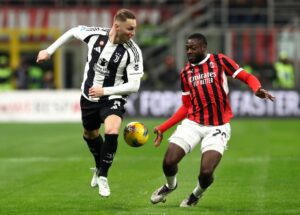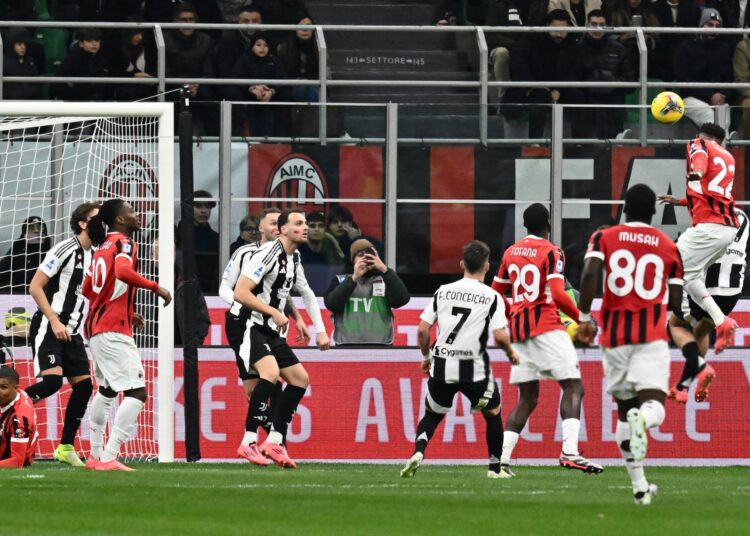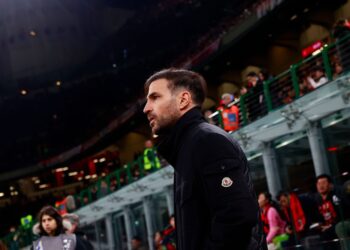Millions of people in Italy and abroad watched Milan - Juventus. They sat bored in ront of ther TVs.
At San Siro, only fear and boredom prevailed—the latter a direct consequence of the former. Milan and Juve go home with clean sheets—the Bianconeri adding to their seasonal collection, while for the Rossoneri, it’s a rare occurrence and therefore a positive—but both teams disappoint, as relayed by La Gazzetta dello Sport on their website.
A lack of courage and personality, albeit with one key distinction: while this bland draw may suit Motta—keeping Milan at a safe distance and preserving his spot on the train of frontrunners—it’s far from good for the Rossoneri. The summit feels ever more distant, talk of the Scudetto is best avoided altogether, and most concerningly, doubts about securing a Champions League spot grow with each passing match.
By the way, while you wait for a positive result from the Rossoneri, you can pass the time thanks to the best aviator game app in India and perhaps you'll striker gold, unlike Fonseca's team who failed to do so last night at the San Siro facility.
Can Milan secure a top-four finish?
As of now, the answer is clear: no.
The bulk of the blame for this dismal 0-0 lies with the Rossoneri: they were the ones in greater need of doing more. Of genuinely trying, not just going through the motions. It’s a troubling sign—fear of making mistakes cannot outweigh the desire to give it a real shot.

Fonseca implemented the same overarching principles seen in Madrid: compactness, robust flank coverage, and speed on the counter. This led to Musah reprising his role on the right—a bright spot during the Bernabéu night. No chance for Pulisic, though, as he wasn’t at his best: “Captain America” stayed on the bench. The system remained fluid but leaned towards a 4-3-3, with Loftus-Cheek and Reijnders as mezzali.
Ahead of Maignan, an unprecedented center-back duo: Thiaw and Gabbia. Meanwhile, Motta, free from the tactical constraints of a traditional striker, unleashed his creativity, mirrored by the freedom given to his four most attacking players: a theoretical front four of Yildiz, Koopmeiners, McKennie, and Conceição. Technique and off-the-ball runs were the focus. The Weah option was shelved mid-game. In defense, Kalulu faced his former club for the first time. The Bianconeri bench had a distinct 1980s vibe, with just five outfield players.
Speaking of movement: where was it? Sparse, at best, in the first half, with both teams equally guilty. Minds paralyzed by the fear of mistakes, legs hesitant to act. Milan's cautious and restrained approach was more noticeable, as they had more to lose. Yet, the Bianconeri didn’t exactly push to pierce the Rossoneri’s defense either. Overly safe passing, an excess of unforced errors in build-up, a couple of decent vertical plays that didn’t trouble Maignan, and that was it.
How did Milan try to catch Juventus off guard?
Paulo Fonseca tried surprising Thiago Motta off guard by having Leão drift centrally and assigning Reijnders a hybrid role, floating between the lines as a mix of defensive midfielder and playmaker.

But the Dutchman failed to find any real openings. The wings were also stifled: Conceição buzzed around actively but couldn’t break through, while Cambiaso and Yildiz were kept in check by Musah and Emerson.
In short, the most skilled players on the pitch were neutralized. Add to that the general reluctance to take risks—yes, dribbles and bursts of pace still exist—and you get a first half of rare dullness. A far cry from a match worthy of global attention. Leão was the only one to attempt something, but always too far from goal, while Juve’s mobile attack lacked a true focal point. Real threats to the goalkeepers? None, except for an Emerson header in injury time that narrowly missed the top corner.
In the second half, both teams began to feel the urgency of the result, and the match picked up pace. Nothing extraordinary, to be clear, but at least there was an attempt to inject some intent, erasing the lethargy of the first half.
Milan and Juve relied on their shared strength: transitions. This led to numerous counterattacks and a series of back-and-forth exchanges that roused San Siro from its slumber. Yet, as in the first half, the goalkeepers were left unbothered (Thiaw’s crucial block on Cambiaso being the exception).
Not even the substitutions made a difference. With 20 minutes left, Pulisic replaced Loftus-Cheek; 10 minutes later, Fagioli came on for McKennie, and Weah for Conceição; Chukwueze replaced Musah shortly after. But nothing changed. Referee Chiffi blew the final whistle, and after him, the boos echoed through the Meazza. A dreadful spectacle.















